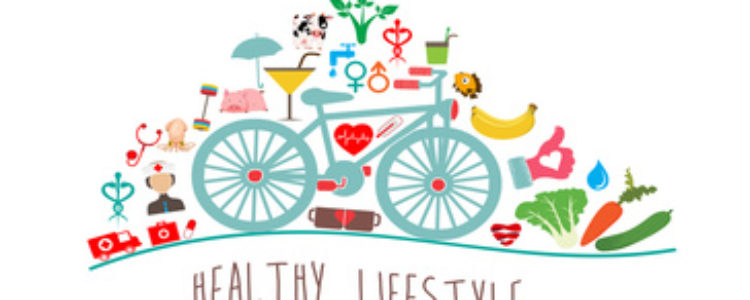
Long Lake MN Chiropractor
In this era, the discussion about health problem is growing rapidly. Starting from many health problems due to the dirty environment, unhealthy lifestyle, DNA mutation and a bunch of diseases that spread worldwide because of virus or bacteria. And the discussion is not only stop there. Many scientists around the world are competing to find an accurate solution to cure the disease using a sophisticated technology. From nanotechnology to genome editing. But, that is not the point. It is not about the cure. Curing an unhealthy body is not a primary concern. Maintaining our health is something we have to worry about. That is why we need to understand anatomy and physiology.
Anatomy (Human anatomy) is the science that study the structure of humanbody. Through anatomy, we can understand the component in our body, such as muscles and its innervation, bones, artery, vein and various internal organ (brain, lungs, heart, liver, etc.). While physiology is the science that is concerned with the function of the living organism and its parts, together with the physical and chemical processes involved. Understanding this two is very important because we will know what we should do and shouldn’t to keep our body healthy. Here is some tips to maintain a healthy body on the views of anatomy and physiology :
- Sleeping position
Heart is one of the most important organ in our body. It pumps blood to the entire part of body and never stop pumping. The size of the heart is just as big as a fist. But this ‘little’ organ plays an important role and keep us alive. The heart position is in the thoracal (chest) cavity. Not right in the middle, but slightly to the left. It’s flanked by the lungs, protected by the thoracic (rib) cage and mediastinum.
The sleeping position influenced the heart work during sleep. When people sleep on their stomach or sleep sideways to the left, it means that they press the heart with their body weight and force the heart to work harder. The best way to avoid that kind of pressure to the heart is by sleeping on our back or sleep sideways to the right.
- A sufficient water
The human body is about 60% water and that amount must be kept consistent so that the body stays in balance (homeostasis). Every day, people constantly losing water from their body in many ways. First, through the respiratory water loss and transcutaneous water diffusion and loss. This category called insensible water loss. The transcutaneous water diffusion and loss is different with sweat because water goes out from the skin through diffusion or via skin pores directly and it’s not produced by the sweat glands. Some literatures said that this insensible water loss is about 700 ml a day while other said 500 ml. Second, through sweat (about 100 ml a day) that produced by the sweat glands to remove heat from the body. And third, through urine which take the most precentage on human body water loss (about 1400 ml a day).
Health experts commonly recommend to consume 2 liters water each day to maintain body fluids and prevent dehydration. Regular thirst indicates that the body is mildly dehydrated. While severe dehydration is characterized by extreme thirst, dizziness, weakness, fatigue, feeling like ‘you are going to faint’ and dark colored urine. If it’s not treated immediately, severe dehydration can cause seizures, kidney disorders and hypovolemic shock (a condition when blood pressure and oxygen levels in the body decrease as a result of decreased blood volume).
- Proper diet
Diet is about consuming food with the proper amount of calories and balanced nutrition. To doa good diet, people have to know the total calories they needs and apply it when they consume food. The carbohydrate, protein, vitamin and minerals have to be fulfilled according the necessity. The need of fat is also important. But, instead of consuming saturated fat, people need to replace it with the healthier one, that is unsaturated food from fish, avocado and almonds.
Other than that, the necessity of sugar and salt must be fulfilled by noticing the amount of that substances that needed by the body. The deficiency of salt can interfere the thyroid hormone production, body fluid balance, nerve cell activity, muscle contraction and relaxation and brain function. While lack of glucose (hypoglicemia) can cause coma and death. Every nutritional intake must be considered properly.
- About chewing food
Many people don’t consider that how they chew food matters. But, this underrated thing can give a positive effect to our body if we do it right. One common piece of advice to chew the food an estimated 32 times before swallowing.
In one study, 30 women consumed meals at different paces. The women who ate slower consumed significantly less food yet felt fuller than those who ate quicker. Another study found that chewing almonds between 25 and 40 times not only supressed hunger but also increased people’s ability to absorb the nutrients from the almonds. Beside, a good chew can effect on maintaining muscles of mastication (Masseter, Temporalis and Pterygoid) better through giving more blood supply on them.
- Avoid alcohol
Consuming alcohol can interfere the body homeostasis (A condition of equilibrium in the body’s internal environment). It causes many damages on the body such as increasing blood flow (that resulted rapid heat loss), heart rate, blood pressure and stress on kidneys, causing muscular weakness, pancreatitis, stomach ulcers, chronic gastritis, vomiting, cirrhosis, bleeding esophageal varices and breathing difficulties. By damaging many system in human’s body, alcohol create a huge chaos in metabolic system and send a man to a worse condition.
- Smoking habit
Smoking is definitely an unhealthy lifestyle and it’s not easy to stop a smoking habit because a nicotine that contained in tobacco smoke causes people who smoke continue to smoke. Beside nicotine, there are so many dangerous chemicals in tobacco smoke such as tar (the carcinogens one and stains teeth, fingernails, lung tissues), carbon monoxide (poisonous gas), oxidizing chemicals (can damage the heart muscles and blood vessels), metals (such as arsenic, cadmium, chromium and cobalt that lead to cancer) and radioactive compounds.
Inhaling tobacco smoke creates many damages to the organs and systems. It causes the irritation of trachea and larynx, reduce lung function (narrowing lung airways, excess mucus in the lung passages, damage the air sacs permanently), tightening the blood vessels that result a raised blood pressure and many negative impact on our body. Just stop and avoid smoking or you just send youself into a worse health condition.
- Be happy
Dr. Grossan, an ENT-otolaryngologis in Los Angeles, asserting that depression can weaken the immune system while happiness can boost human body’s resistance. Some studies even shows that there is a connection between the habit of smiling with health. A smile creates a powerful chemical reaction in the brain. Dopamine and serotonin will produced by the brain to increase happiness and reduced stress. The researchers of Kansas University published that smiling helps reduce the body’s response to stress and lower heart rate in tense situations. Another study found that smiling leads to longevity.
- Doing Exercise
Exercising regularly helps keep the body healthy. Exercise can strengthen the heart muscle, lower blood pressure, reduce body fat and prevent obesity. But, the most important thing to do before doing exercise is make sure that you do a proper warm up to avoid muscle cramp. Furthermore, the instensity of the exercise must be calculated well. The excessive intensity of exercise can have a negative effect on muscles (causing excessive muscle injury and muscle fatigue).
There are many chemical reactions that take place in the body after exercise. Some of that are the production of endorphin, BDNF and cortisol.First, the endorphin production. Endorphin is a polypeptides that bind with neurotransmitters in the brain to reduce pain and stress, boost immunity and slow the aging process.Second, the BDNF (Brain-Derived Neurotropic Factor). BDNF is a hormone that interacts with the central nervous system and has function to improve mood, boost cognitive function, improve memory and contributes to repair neurons. Third, the cortisol.Cortisol is a hormone that released by the adrenal glands during times of stress. It helps the body respond to the physical demands by helping metabolize carbohydrates into glucose for energy.
- Have enough sleep
Feeling tired and sleepy is a natural reaction when it needs to ‘recharge its batteries’. Without enough sleep, human body does not function as it normally would. Sleep is a natural phenomenon that happens when human’s body need to rest and take breather. Eventually, the body itself will take over and force usto sleep. It does this because the body needs sleep to keep on living. The main chemicals that take a role in sleeping activity is adenosine and melatonine.
Kesehatan selalu tampak berharga setelah kita kehilangannya
(Health always seems valuable after we lose it)
Author Bio: Dennia Oktavia Zahidah Hulwah, 18 years old student from Malang, East Java Province, Indonesia.A participant and SECOND Winner (below 18 Years) of International Essay Competition,February, 2019


